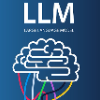Multimodal large language models (MLLMs) carry the potential to support humans in processing vast amounts of information. While MLLMs are already being used as a fact-checking tool, their abilities and limitations in this regard are understudied. Here is aim to bridge this gap. In particular, we propose a framework for systematically assessing the capacity of current multimodal models to facilitate real-world fact-checking. Our methodology is evidence-free, leveraging only these models' intrinsic knowledge and reasoning capabilities. By designing prompts that extract models' predictions, explanations, and confidence levels, we delve into research questions concerning model accuracy, robustness, and reasons for failure. We empirically find that (1) GPT-4V exhibits superior performance in identifying malicious and misleading multimodal claims, with the ability to explain the unreasonable aspects and underlying motives, and (2) existing open-source models exhibit strong biases and are highly sensitive to the prompt. Our study offers insights into combating false multimodal information and building secure, trustworthy multimodal models. To the best of our knowledge, we are the first to evaluate MLLMs for real-world fact-checking.
翻译:暂无翻译





